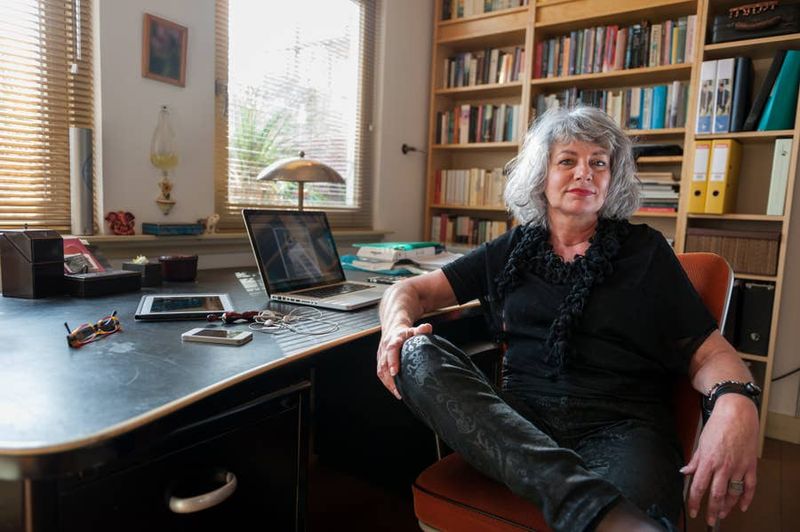18 Relationship Regrets Older Women Reflect On The Most

Life grants us wisdom through experience, often after we’ve already made choices we can’t undo. Many older women look back on their romantic journeys with new clarity, seeing patterns and mistakes they wish they’d recognized sooner.
Their reflections aren’t about bitterness but about the hard-earned insights they hope might help younger generations avoid similar heartaches.
1. Staying when love turned into obligation

Many women remember the exact moment they realized they were staying out of duty, not desire. The relationship had transformed from passionate connection to a checklist of responsibilities, yet they remained, believing commitment meant endurance at all costs.
The slow fade from joy to obligation happens almost imperceptibly. One day you’re choosing someone because they light up your world; the next you’re choosing them because leaving feels impossible. The calendar fills with obligations rather than adventures, and conversations become functional instead of curious.
What these women wish they’d understood earlier is that real love should feel liberating, not like a sentence to be served. Love needs tending and intention to thrive—not just presence. When asked what they’d tell their younger selves, many say: “The moment you start referring to your relationship as ‘work’ more than ‘joy’ is the moment to reassess everything.”
2. Confusing loyalty with self-sacrifice

The line between standing by someone and standing in your own way blurred for many women who now look back with clarity. They recall how praise for being “so supportive” or “such a good partner” reinforced behaviors that gradually hollowed them out.
Loyalty became their identity, their badge of honor. They supported partners through job losses, addictions, and dreams—often at the expense of their own needs and aspirations. Years passed with their own goals perpetually on hold, always waiting for the “right time” that never seemed to arrive.
These women now recognize that healthy loyalty has boundaries. True partnership means mutual support that lifts both people higher, not one person constantly diminishing themselves. “I wish I’d known that sacrificing myself wasn’t noble,” one woman reflected. “It just taught him that my needs didn’t matter, and eventually, I started to believe that too.”
3. Mistaking comfort for happiness

The predictable rhythm of a long-term relationship can feel like a warm blanket. Many women confess they stayed wrapped in this comfort long after they stopped feeling truly happy, mistaking familiarity for fulfillment.
The routine becomes a substitute for joy—knowing exactly what he’ll order at dinner, which side of the bed is yours, how weekends will unfold. The certainty feels safe when the alternative seems like jumping into darkness. Women speak of years spent in this comfortable numbness, not miserable enough to leave but not truly thriving either.
Now they understand that genuine happiness sparks something inside you—it doesn’t just keep you warm. “I spent twenty years not unhappy enough to leave,” one woman admits. “Looking back, I wish I’d been brave enough to ask myself if ‘not unhappy’ was really good enough for my one precious life.”
4. Ignoring gut feelings because they “loved” him

That whisper of unease that rises when something feels wrong—so many women remember silencing it. They dismissed their intuition as paranoia, jealousy, or insecurity, allowing love to override their internal warning system.
The body knows before the mind admits it. Unexplained anxiety before he calls, tension that appears when certain topics arise, or that sinking feeling when plans change suddenly—these physical signals tried to communicate what these women weren’t ready to hear. Instead, they doubled down on trust, mistaking blind faith for love.
Years later, they recognize how accurately their intuition had assessed situations their hearts weren’t ready to face. The lesson they pass forward isn’t about suspicion but about respect for your own knowing. “Love doesn’t require you to abandon your intuition,” one woman observed. “Real love actually makes you feel more connected to yourself, not less.”
5. Losing themselves inside someone else’s dreams

The slow surrender of personal ambitions happens one small decision at a time. Women describe waking up years into relationships realizing they’d become supporting characters in their partners’ life stories rather than protagonists of their own.
It starts innocently—postponing a class because his work schedule changed, moving to his preferred city because his career was “more established,” adopting his hobbies while abandoning yours. His dreams expand while yours contract, until one day you can barely remember what you wanted before his goals became the relationship’s North Star.
These women now understand that love shouldn’t require identity erasure. “I thought being a good partner meant making his dreams come first,” one woman reflected. “Now I know that the best relationships have room for two dreamers, and sometimes that means following parallel paths rather than merging into one.”
6. Staying silent to keep the peace

The accumulated weight of swallowed words eventually becomes too heavy to carry. Women speak of the exhaustion that comes from years of careful silence—of monitoring thoughts before expressing them, of choosing harmony over honesty.
Each unspoken concern or suppressed opinion seemed small in the moment. They told themselves it wasn’t worth the argument, the tension, his disappointment or anger. Peace became the ultimate goal, even as the cost of maintaining it grew higher. The relationship appeared smooth on the surface while resentment gathered underneath like sediment.
The wisdom they’ve gained is that real peace cannot come from silence but only through the messy, sometimes uncomfortable process of true communication. “I spent years afraid of rocking the boat,” one woman shared. “I didn’t realize I was actually sinking it by filling it with the weight of everything I never said.”
7. Overlooking small disrespect because it wasn’t “serious”

The dismissive comment about her appearance at a party. The eye roll when she shared an opinion. The interrupted stories and the forgotten birthdays. Women recall how they categorized these moments as minor irritations rather than recognizing them as the foundation of something more concerning.
They rationalized these behaviors because they weren’t the dramatic red flags they’d been warned about. No one was being physically harmed or openly cheated on. Friends and family saw a functional couple, not the thousand paper cuts of disrespect accumulating beneath the surface.
Time has taught them that respect doesn’t exist on a spectrum—it’s either present or it’s not. “I wish I’d understood that how he treated me when it didn’t matter showed me exactly how he’d treat me when it did,” one woman explained. “The small moments weren’t actually small at all—they were showing me everything I needed to know.”
8. Believing change would come if they loved harder

Love as transformation—this powerful myth captured so many hearts. Women recall the years spent believing their love could heal childhood wounds, cure addictions, or transform selfish partners into attentive ones if only they loved with enough patience and dedication.
They became emotional archaeologists, digging for the better man they believed existed beneath layers of hurtful behavior. Each glimpse of improvement became evidence their strategy was working, each setback just a sign they needed to try harder or wait longer. The relationship became a renovation project with no completion date.
The hard-won truth they now understand is that people change only when they’re internally motivated, not when they’re externally loved. “I thought if I could just find the right combination of understanding and forgiveness, he would become the person I knew he could be,” one woman shared. “I didn’t realize I was loving a possibility, not the actual person in front of me.”
9. Prioritizing potential over reality

The gap between who someone could be and who they actually are creates a painful space where years can disappear. Women describe relationships built around future promises—the better job he’ll get someday, the commitment he’ll make when he’s ready, the maturity that will surely come with time.
They invested in the idealized future version of their partners, making deposits into emotional accounts they would never actually access. While friends raised concerns about present behaviors, these women defended with passionate explanations of future possibilities. Reality became something to endure while waiting for potential to manifest.
Looking back, they recognize how they used potential as a filter that allowed them to see only what they wanted to. “I built a relationship with a man who didn’t exist yet,” one woman admitted. “I kept waiting for him to become the person I knew he could be, only to realize after fifteen years that he was already exactly who he wanted to be.”
10. Shrinking to make him feel bigger

The subtle art of taking up less space happens almost unconsciously. Women recount how they gradually dimmed their light—speaking less confidently in public, downplaying achievements, or abandoning pursuits that outshined their partners’.
They learned to read the room, sensing when their success created tension. A promotion became something to mention carefully, an accomplishment to be minimized. They developed complex choreography around their partner’s ego, becoming smaller to prevent his insecurity from growing larger.
The perspective of years has shown them that any relationship requiring diminishment isn’t love but limitation. “I thought making myself smaller would make the relationship work better,” one woman reflected. “I didn’t understand that I was setting a pattern where my growth would always be treated as a threat rather than celebrated. Real partnership expands with you—it doesn’t ask you to contract.”
11. Settling for being needed instead of being loved

The validation that comes from being essential to someone’s functioning can masquerade as love for decades. Women describe the intoxicating feeling of being irreplaceable—the one who remembers his appointments, manages his emotions, or keeps his life running smoothly.
Being needed created purpose and identity. They became the problem-solver, the emotional translator, the social coordinator. This role granted security—after all, how could he leave someone so necessary? The arrangement felt like closeness, even as true intimacy remained elusive.
With time’s perspective, they see how being someone’s life support system differs fundamentally from being their beloved. “I confused his dependence on me with devotion to me,” one woman observed. “He needed what I did for him, not who I was. I wish I’d understood earlier that being someone’s functional necessity isn’t the same as being their chosen desire.”
12. Thinking time invested meant the relationship was worth saving

The mathematics of love becomes complicated when years accumulate. Women talk about staying in unfulfilling relationships because leaving would mean “wasting” the time already invested—five years, ten years, twenty years seemed too substantial to walk away from.
They calculated value based on duration rather than quality. Each anniversary became another reason to stay, another marker making departure seem increasingly impossible. The relationship’s longevity itself became the primary achievement, regardless of whether it brought fulfillment or growth.
The wisdom they’ve gained is that time passes regardless of how we spend it. “I stayed for thirty-two years because I thought leaving would mean those years were wasted,” one woman shared. “What I understand now is that the real waste wasn’t the years behind me—it was the potential years ahead that I almost surrendered to the same emptiness. The investment that mattered wasn’t the time I’d spent but the life I still had left to live.”
13. Hiding parts of themselves to fit his idea of “enough”

The careful curation of self begins subtly—noticing which aspects of your personality draw his approval or disapproval. Women describe the gradual process of tucking away parts of themselves that didn’t fit their partner’s preferences or expectations.
Passionate opinions became measured responses. Quirky interests went underground. Friendships that triggered his jealousy slowly faded. The wild laughter that he found “too loud” quieted. They shaped themselves around his comfort, becoming more acceptable versions in exchange for approval.
The perspective gained through years reveals how this bargain costs much more than it initially appears to. “I thought relationships required compromise, so I compromised myself,” one woman explained. “It took me decades to realize that the right person doesn’t want the edited highlights of who you are—they want the full, messy, authentic version. I wish I’d known the difference between healthy compromise on issues versus unhealthy compromise of self.”
14. Making excuses for behavior they should have walked away from

The stories we tell ourselves to make sense of hurtful behavior can become elaborate works of fiction. Women remember the creative explanations they constructed to justify their partners’ actions—he’s stressed at work, he had a difficult childhood, he doesn’t really mean it.
They became expert translators, converting disrespect into misunderstanding and neglect into busyness. Each explanation preserved the relationship’s viability while dismissing their own perceptions. Friends heard carefully edited versions that omitted the worst moments or included the context that supposedly made those moments understandable.
Time has clarified what they couldn’t see then—that explanation isn’t the same as justification. “I became so good at explaining away his behavior that I explained away my own standards,” one woman reflected. “I wish I’d understood that constantly having to interpret someone’s actions to make them acceptable is already a sign they’re not acceptable at all.”
15. Staying to avoid being “alone”

The specter of loneliness can make even unhappy companionship seem preferable. Women speak of years spent in emotional solitude while physically accompanied, convinced that this partial connection was better than no connection at all.
Fear painted vivid pictures of empty holidays, untouched sides of the bed, and silent evenings stretching into years. Society’s subtle messaging that a woman alone is somehow incomplete reinforced these fears. The familiar discomfort of an unfulfilling relationship felt safer than the unknown territory of independence.
What they’ve discovered with time is that true loneliness happens inside relationships, not just outside them. “I stayed with him for eight more years because I was terrified of being alone,” one woman shared. “The irony is that I was already completely alone—I just had someone sitting next to me on the couch while I felt it. Real loneliness isn’t about physical presence; it’s about emotional connection. I wish I’d had the courage to seek real connection instead of accepting its appearance.”
16. Thinking forgiveness meant forgetting

The pressure to forgive can become a silencing mechanism that buries legitimate wounds. Women describe cycles where apologies were accepted and issues supposedly resolved, only for the same patterns to repeat because the underlying problems were never truly addressed.
They equated forgiveness with memory erasure, believing good partners should “move on” completely after an apology was offered. Each incident was treated as isolated rather than part of a pattern. The relationship accumulated unhealed injuries beneath a veneer of resolution.
Their hard-earned wisdom is that genuine forgiveness doesn’t require amnesia. “I thought being forgiving meant I couldn’t bring up past hurts, even when the same behavior kept happening,” one woman explained. “I didn’t understand that forgiveness is about releasing resentment, not about surrendering your right to protect yourself from repeated harm. True resolution means the pattern changes, not just that the apology is accepted.”
17. Giving more than they ever got back

The mathematics of love should balance eventually, but many women recall relationships where the equation remained perpetually lopsided. They remember pouring endless energy, attention, and care into partnerships while receiving sporadic affection and minimal effort in return.
They became emotional investors constantly making deposits into accounts that never yielded returns. Each small gesture from their partner felt momentous against the backdrop of usual neglect, resetting the tolerance for imbalance. They lowered expectations gradually, celebrating bare minimum efforts that once would have seemed insufficient.
The perspective of years has shown them that love shouldn’t require constant self-depletion. “I mistook exhaustion for devotion,” one woman reflected. “I thought love meant giving everything without expecting anything back. Now I understand that mutual nourishment is what sustains a relationship—not one person constantly emptying themselves while the other barely contributes. Real love refills you; it doesn’t drain you dry.”
18. Believing they were too old to start over

The math of remaining years can become a prison of its own making. Women describe calculating their age against perceived possibilities and deciding that the window for renewal had closed—that forty, fifty, or sixty was too late to rebuild a life.
They imagined the challenges of dating again, establishing new routines, or facing family holidays alone. Each birthday strengthened the conviction that staying in an unfulfilling relationship was more practical than facing uncertainty at “their age.” The familiar discomfort became preferable to the imagined difficulties of transition.
The wisdom they now possess is that beginning again remains possible at any age. “I stayed fifteen years too long because I thought I was too old to start over at forty-five,” one woman shared. “Now I’m seventy and those fifteen years seem so precious—I wish I’d known that it’s never too late to choose yourself. The time passes anyway; the only question is whether you’ll spend it truly living or just waiting.”
